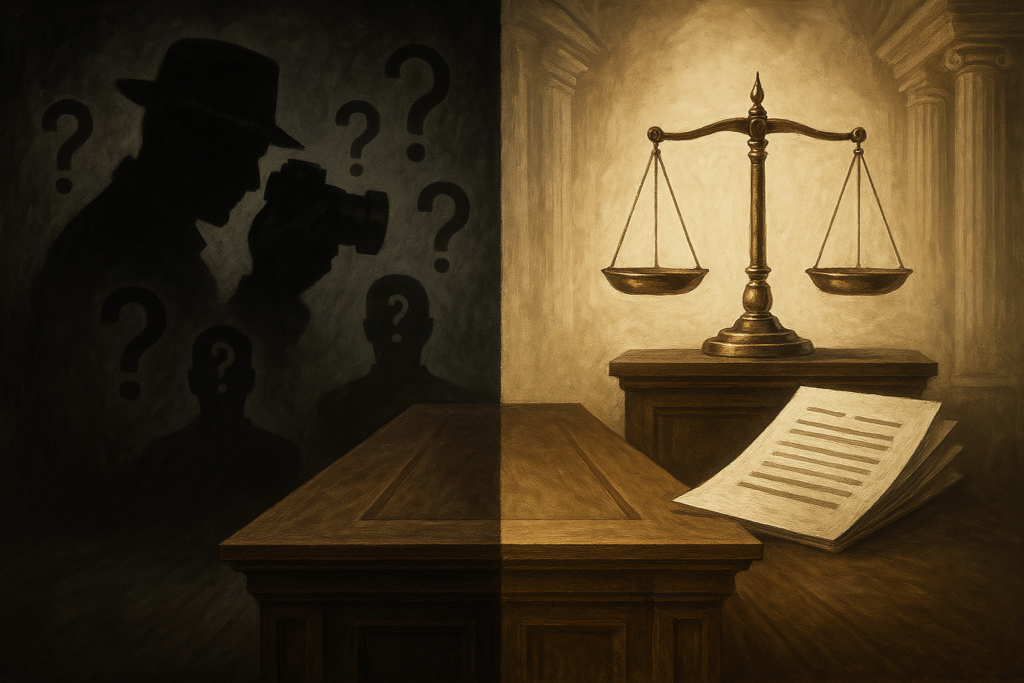Can a Lie Detector Test Prove Cheating in a Relationship?
When trust erodes in a relationship due to suspicions of infidelity, clarity becomes crucial. But can a lie detector test really uncover the truth?

Understanding How Lie Detectors Work
A lie detector, or polygraph, measures physiological responses like heart rate, blood pressure, breathing, and skin conductivity. We utilize modern, validated techniques to ensure every test is administered with precision and integrity. When someone lies, stress often triggers detectable physiological changes.
Types of Questions Used in Infidelity Tests
Typical questions during infidelity polygraph tests include:
- Have you had sexual contact with someone other than your partner?
- Are you currently involved romantically outside your relationship?
- Have you been unfaithful since starting this relationship?
The Accuracy of Lie Detector Tests for Infidelity
Source: American Polygraph Association
European Polygraph: Clarifying Suspicions of Infidelity
According to a comprehensive meta-analysis conducted by the American Polygraph Association (APA), validated polygraph techniques demonstrate an average accuracy rate of approximately 89% in real-case scenarios, with some formats such as the Utah Comparison Question Test (CQT) reaching up to 92% accuracy (Nelson et al., 2011). These findings reflect strong empirical support for the use of polygraphy in credibility assessment. Learn more about how we apply this science in our infidelity testing services. While no test is infallible, these rates compare favorably to many other forensic techniques.
Can Nervousness Impact Results?
Many fear that anxiety or nervousness will falsely indicate deception. However, numerous scientific studies and decades of field experience confirm that general nervousness does not produce the same physiological patterns as deliberate deception. Qualified examiners are specifically trained to distinguish between natural anxiety and deceptive responses.. According to the American Polygraph Association, standardized pre-test procedures and question formats are designed to isolate relevant responses and minimize false positives due to nervousness (APA FAQ Sheet).

Real-Life Examples of Polygraph in Infidelity Cases
Related: Impacts of Polygraph Tests in Marital Trust
Consider this anonymized scenario: a woman suspected her long-term partner of cheating after discovering late-night texts and secretive behavior. Instead of hiring a private investigator, she requested a polygraph test. The partner agreed, and the test confirmed emotional involvement with a third party but no physical infidelity. This distinction helped the couple address the root issue honestly and decide on therapy rather than separation.
In another case, a husband undergoing a contentious divorce was falsely accused of infidelity to influence custody arrangements. A voluntarily taken polygraph test, supervised by an APA-certified examiner, cleared him of the allegations. The report became a turning point in mediation and contributed to a fair resolution.
These cases highlight the practical power of polygraphy in emotionally charged situations. If you’re unsure whether this solution is right for your situation, don’t hesitate to contact us for a confidential consultation. You can explore more on our infidelity testing approach and how we guide clients through these moments with care and confidentiality. Whether proving innocence or confirming suspicion, the polygraph offers a fast, evidence-based way to move forward—with or without reconciliation.
Hot Topic: More people are now voluntarily using infidelity polygraphs before marriage or prenups to establish trust or protect against potential disputes. It’s not just reactive anymore—it’s preventative. Some even request polygraph clauses in relationship agreements, showing how mainstream the idea has become in high-stakes relationships.

Polygraph Test vs. Other Infidelity Detection Methods
Compared to private investigators, phone tracking, or hidden camera surveillance, polygraph tests provide a unique advantage: they give direct answers based on the individual’s own responses. There’s no guesswork, no interpretation of vague behavioral signs, and no reliance on circumstantial digital evidence.
While private investigators can document suspicious behavior, they rarely provide definitive proof of emotional or physical infidelity. Likewise, digital forensics may expose communication patterns but can’t confirm intent or honesty. In contrast, a polygraph test—conducted under professional conditions—delivers an objective, science-backed assessment of truthfulness. To understand where polygraph fits among available tools, visit our full list of practice areas.
In some high-profile cases, couples have used a combination of polygraph results and investigator reports to confront deception and negotiate prenuptial adjustments, custody agreements, or even therapy plans. In this way, the polygraph acts not just as a standalone solution but as a powerful addition to a broader truth-seeking strategy.
Conclusion
In a world where relationships can be shaken by doubt, a polygraph test offers more than just answers—it provides closure. Whether you’re seeking confirmation or reassurance, a professionally conducted lie detector test can help couples move forward with honesty, rebuild trust, or make informed decisions about the future. With validated techniques showing accuracy rates close to 90%, polygraphy stands as one of the most scientifically grounded tools for truth verification in private matters.
It’s not just about catching someone in a lie—it’s about giving both partners a path out of uncertainty. When emotions run high and the stakes are personal, clarity becomes a gift. If you’re ready to take action, you can schedule your polygraph test here.
Check out related topics:
Frequently Asked Questions
Can a polygraph test prove if my partner is cheating?
Yes. When conducted properly, a polygraph test can detect deceptive responses to direct questions about infidelity with a high degree of accuracy—often exceeding 89%.
What questions are typically asked during an infidelity polygraph test?
Questions are tailored to the relationship and situation. Common examples include:
- Have you had sexual contact with anyone else since the relationship began?
- Have you communicated secretly with an ex-partner?
- Have you lied to your partner about your whereabouts recently?
How much does an infidelity polygraph test cost?
At Invictus Polygraph, the standard fee is $750, which includes a full test session conducted by a certified examiner.
Can someone beat a polygraph test?
No. With modern polygraph techniques and trained professionals, beating the test is virtually impossible. Attempting to deceive the system often results in clearer signs of manipulation, which experienced examiners are specifically trained to detect.
How long does the test take?
Most infidelity polygraph exams take around 2.5 to 3 hours, including the pre-test interview and analysis.
Will stress or anxiety affect the test?
No. Polygraph protocols are designed to filter out normal nervousness. Examiners are trained to distinguish anxiety from deception, ensuring that stress does not distort results.
What happens after the test?
You’ll receive a verbal and/or written report summarizing the results. This can be used privately to resolve issues or, in some cases, shared with a therapist, mediator, or attorney if needed.
Is it common to use a polygraph in relationships?
Yes. In recent years, more couples have turned to polygraphs not only to address suspicions but also as a proactive step before marriage or during therapy to establish clarity and trust.
